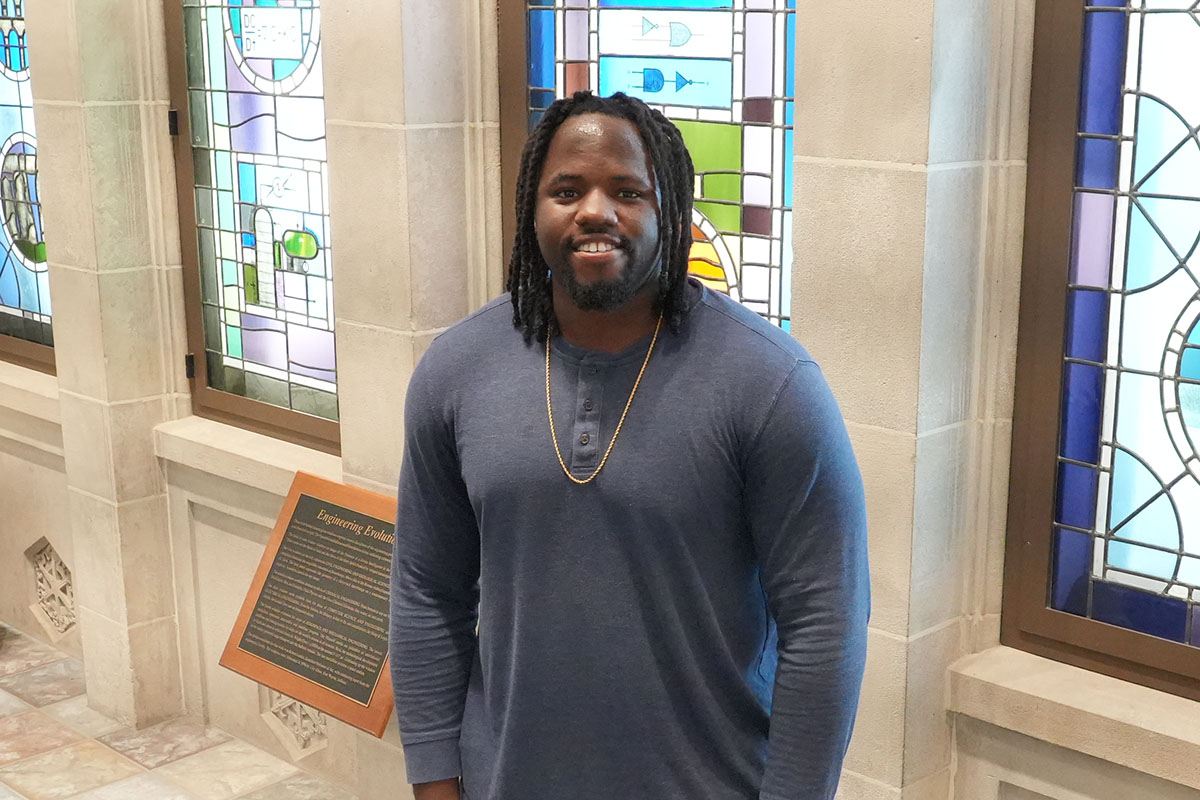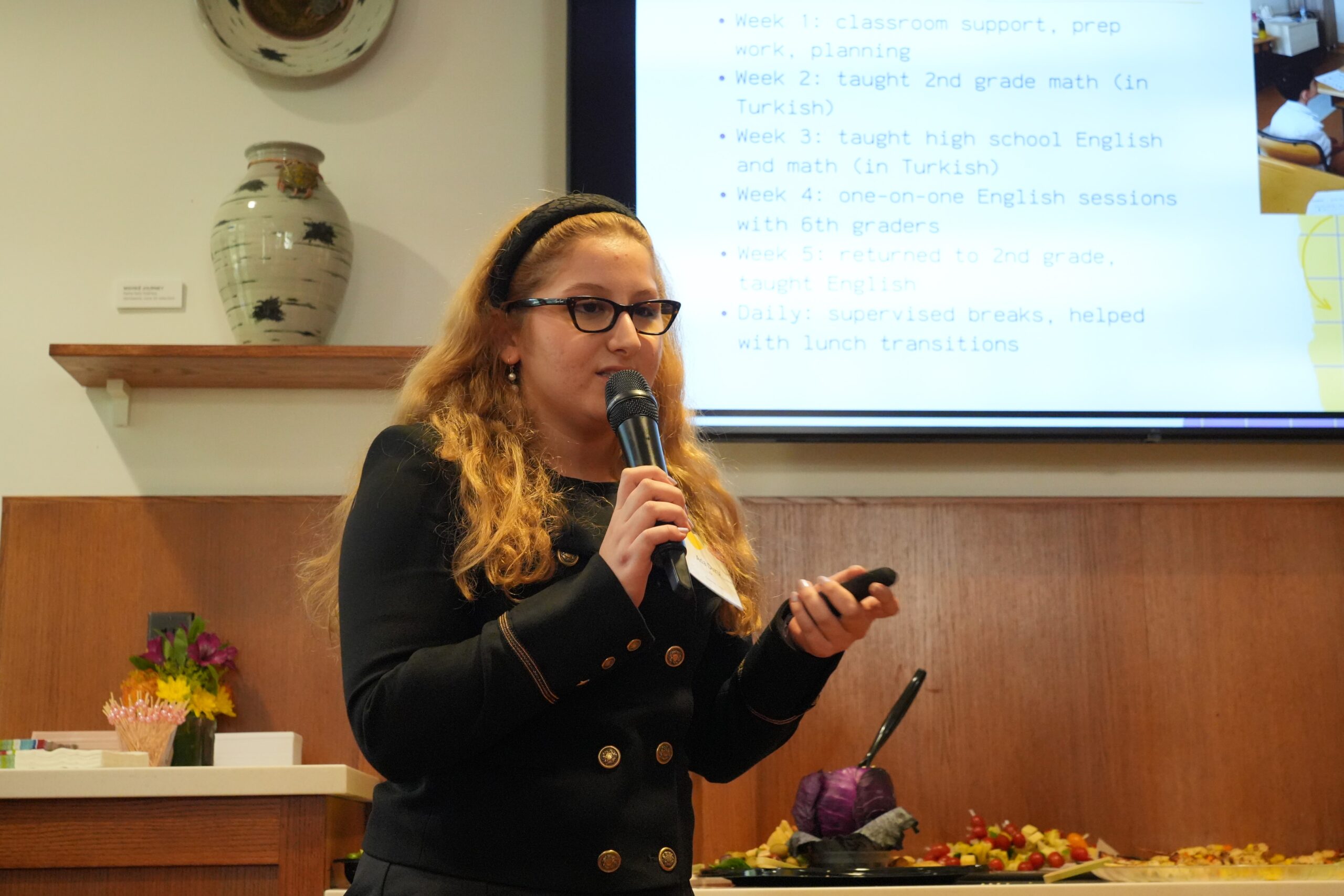ReSEARCHING for the Common Good: Ozioma Oguine
October 28, 2024
As an interdisciplinary academic institute, the Institute for Social Concerns leverages research to respond to the complex demands of justice and to serve the common good. This series, ReSEARCHING for the Common Good, highlights some of the scholars in our community.

Ozioma “Ozzie” Oguine is a third-year Ph.D. student in computer science and engineering, specializing in human-computer interaction.
He works in the EPOCH Research Lab directed by Professor Karla Badillo-Urquiola. The lab is dedicated to exploring how technology design impacts people’s lives and how it can be improved. Oguine’s research focuses on understanding and promoting online safety and well-being for marginalized youth.
Over the summer, he interned at the Center for Democracy and Technology in Washington, DC, where he developed a keen interest in the policy aspects of this research. You can read about his findings in “Why Teen Perspectives are Crucial for Shaping Online Safety Policies.”
Oguine was a Graduate Justice Fellow at the Institute for Social Concerns during the 2023-24 academic year.
How did you become interested in tech design and the ways it can help teens from marginalized groups be safer online?
As a Black man with a disability, my personal experiences navigating spaces that weren’t always designed with people like me in mind shaped my interest in tech design. Growing up, I often found myself excluded or overlooked by systems that weren’t accessible or inclusive. This sparked my desire to work in technology, not just to participate, but to help create spaces where everyone, especially marginalized groups, could feel safe and included.
Youth are at a crucial stage of development, marked by exploring their identities and seeking meaningful connections with others. My focus on supporting the online safety of teens from marginalized groups stems from recognizing their heightened vulnerability in online spaces. Youth from minority communities often encounter unique risks online, such as cyberbullying, harassment, and exposure to harmful content, which can significantly impact their well-being and development. My research aims to understand the unique online experiences of youth from marginalized backgrounds and develop solutions that address their diverse needs, ultimately providing them with safer and more empowering online experiences.
What are some of your research findings?
Empowering teens to keep themselves safe online requires developmental teen-centric approaches that encourage informed decision-making. Rather than just blocking content or blurring images, which can increase curiosity, providing teens with information through “nudges” helps them make responsible choices. This approach fosters a sense of agency and promotes safer online behavior.
Additionally, news media often emphasize the risks and dangers of online technology, promoting fear around online safety. While these concerns are valid, they frequently overlook the benefits that online technologies offer to youth. Our research suggests adopting a more strength-based perspective to study online safety, focusing on how technology can positively support teens’ growth and development.
Is there any art or media that has inspired you?
Alice Wong’s “Disability Visibility” has been especially inspiring to me. It’s a collection of stories from people living with disabilities, showing how sharing these experiences can change perspectives and foster self-acceptance. The book taught me that my perspective matters and that how I share it with the world is important.
Related Stories
-
ReSearching for the Common Good: Solbee Kang
-
Bridging worlds through art—Kyla Walker joins institute as international poetry justice fellow
-
The power of encounter—RISE Hometown prepares incoming students for learning in service of justice at Notre Dame
-
The beauty of everyday democracy—Institute convenes scholars, practitioners, Luke Bretherton for democracy conference
-
Catalyzing collaborations with South Bend citizens for the common good—Institute launches South Bend Citizens Collaboratory





